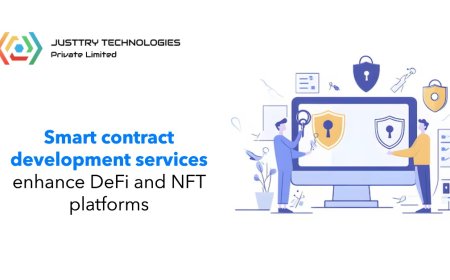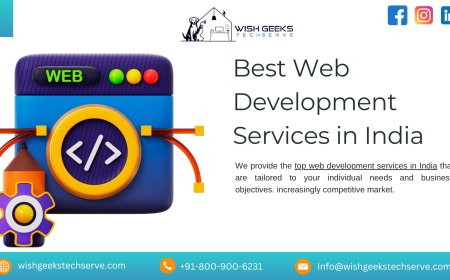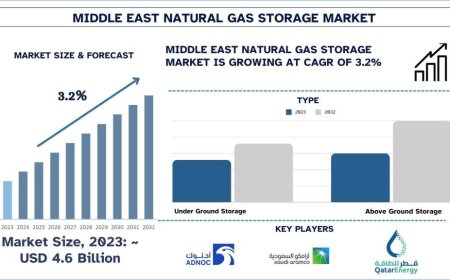Why Are Companies Switching to Cloud Based CRM Software?
Discover why businesses are moving to cloud-based CRM software. Explore its benefits, scalability, and why it's seen as the best cloud-based contact manager today.

In todays fast-paced digital environment, managing customer relationships has become more complex and crucial than ever. As businesses continue to evolve, many are making the strategic decision to transition from traditional systems to cloud-based CRM software. But whats driving this major shift?
The answer lies in a combination of efficiency, cost savings, scalability, and real-time access. In this article, well explore the reasons behind the growing adoption of cloud-based CRM solutions, how they transform customer relationship management, and why they are being recognized as the best cloud-based contact manager for modern businesses.
Understanding Cloud Based CRM Software
Before diving into the reasons for the switch, lets clarify what cloud based CRM software is.
A cloud-based CRM (customer relationship management) system is a platform that helps businesses manage their interactions with current and potential customers. Unlike traditional on-premise systems, it is hosted on the cloud and accessed through the internet. This means theres no need for local servers, expensive hardware, or bulky software installations.
Key Features of Cloud CRM:
-
Accessible from anywhere with internet
-
Real-time updates and synchronization
-
Seamless integration with other digital tools
-
Automated backups and data protection
-
Subscription-based pricing model
1. Accessibility and Remote Work Flexibility
One of the biggest reasons companies are switching to cloud CRM platforms is accessibility.
With remote and hybrid work models becoming the norm, teams need tools they can access from anywhere. Whether it's a sales rep working from home or a support agent traveling, cloud CRM allows team members to log in from any device, anytime.
This level of flexibility ensures
-
No disruption to business processes
-
Improved team productivity
-
Instant updates across departments
Businesses no longer need to be tied to an office network or single systemcloud solutions break those barriers completely.
2. Cost-Effective and Scalable
Traditional CRM systems often require upfront investment in infrastructure, licensing, IT maintenance, and staff training. In contrast, cloud-based CRM software operates on a subscription modelusually monthly or annuallymaking it far more budget-friendly.
Additionally, cloud CRMs are scalable:
-
Small businesses can start with basic features.
-
As needs grow, features and users can be added easily.
-
You pay only for what you use.
This allows businesses of all sizes to access high-level CRM tools without a significant capital expenditure.
3. Improved Collaboration Across Teams
In a modern business, various departments need access to customer datafrom sales and marketing to support and operations. A cloud CRM creates a centralized database, allowing seamless collaboration.
For example:
-
Sales teams can see past customer interactions.
-
Support agents can respond more effectively with customer history.
-
Marketing teams can analyze behavior patterns for better targeting.
Having everything in one place reduces miscommunication, eliminates data silos, and encourages aligned strategies across departments.
4. Faster Deployment and Automatic Updates
On-premise CRM systems can take weeksor even monthsto install, configure, and test. Cloud CRM platforms, on the other hand, can be deployed in a matter of hours.
Theres also no need to worry about
-
Manual upgrades
-
System downtime
-
Software compatibility
With cloud CRM, updates are handled automatically by the provider. This ensures that businesses are always working with the latest features and security patches, without IT headaches.
5. Enhanced Data Security and Compliance
Security is a top priority for any business handling sensitive customer data. Cloud CRM providers invest heavily in enterprise-grade security, including:
-
Data encryption
-
Two-factor authentication
-
Regular audits and compliance
They also help businesses adhere to data privacy regulations such as
-
GDPR (Europe)
-
CCPA (California)
-
PIPEDA (Canada)
With automatic backups and disaster recovery options, data is safer in the cloud than on local servers.
6. Customization and Integration Capabilities
Every business is uniqueand a one-size-fits-all approach rarely works. Cloud CRM solutions offer a high level of customization to match industry-specific needs.
You can:
-
Create custom workflows
-
Automate repetitive tasks
-
Add fields relevant to your industry.
-
Build custom dashboards
They also integrate seamlessly with popular third-party tools like
-
Email marketing platforms (Mailchimp, Constant Contact)
-
Accounting software (QuickBooks, Xero)
-
Project management tools (Asana, Trello)
This connected ecosystem allows businesses to work more efficiently with less manual effort.
7. Data-Driven Insights and Analytics
Having access to data is one thinginterpreting it effectively is another. Cloud CRM tools often come with advanced analytics and reporting dashboards that help companies
-
Track sales performance
-
Monitor customer behavior.
-
Forecast revenue
-
Identify areas for improvement.
These insights are crucial for making informed decisions. With real-time reporting, teams dont have to wait for monthly reportsthey can act on insights immediately.
8. Competitive Advantage in a Digital Economy
In the modern marketplace, customer experience is a key differentiator. Companies that adopt digital tools like cloud CRM are better equipped to:
-
Respond quickly to customer inquiries.
-
Offer personalized experiences.
-
Resolve issues faster
-
Understand customer needs deeply.
Cloud CRM empowers businesses to build stronger relationships and stay ahead of competitors who are still using outdated systems.
9. Eco-Friendly and Sustainable Choice
Switching to cloud CRM also supports sustainability. Since data is stored in shared servers and accessed remotely, there's
-
Less energy consumption on-site
-
Reduced hardware usage
-
Lower carbon footprint compared to on-premise setups
Many cloud service providers also operate energy-efficient data centers, making this move both eco-conscious and practical.
10. Future-Proofing Your Business
As technology advances, businesses need solutions that evolve too. The flexibility of cloud-based CRM software means it can adapt to emerging technologies like
-
Artificial Intelligence (AI)
-
Predictive Analytics
-
Chatbots and Automation
-
Voice-based CRM interaction
Adopting cloud CRM today prepares companies for tomorrows digital demands. It ensures your business wont be left behind when customer expectations evolve.
Real-World Adoption: Whos Making the Switch?
Many industries have already embraced cloud CRM, including
-
Retail: Managing inventory, customer preferences, and sales
-
Healthcare: Secure patient communication and appointment tracking
-
Education: Managing student engagement and records
-
Finance: Secure client communications and task automation
-
Real Estate: Tracking leads, contracts, and follow-ups
Even small businesses and startups are adopting cloud CRM to streamline operations from the beginning.
Choosing the Best Cloud Based Contact Manager
With so many cloud CRM solutions available, its important to choose a platform that aligns with your specific goals.
When evaluating options, consider:
-
Ease of use: Is the interface intuitive?
-
Support: Is customer service responsive and helpful?
-
Customization: Can you tailor it to your processes?
-
Mobile access: Is it optimized for smartphones and tablets?
-
Scalability: Will it grow with your business?
Some of the best cloud-based contact manager platforms also offer free trials or demo versions. This allows teams to test out features before committing long-term.
Conclusion: The Cloud Is No Longer Optional
The business landscape is changingand companies that want to remain competitive must evolve with it. Moving to cloud-based CRM software is not just a trend; its a strategic move that brings agility, efficiency, and long-term value.
With benefits like real-time access, reduced costs, better collaboration, and secure data handling, cloud CRM has become essential for businesses of all sizes.
Its not just about managing contacts; its about empowering your entire business to perform better.
Are you ready to future-proof your customer relationships?
Start exploring the best cloud-based contact manager today and take your business to the next level.
































